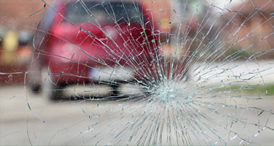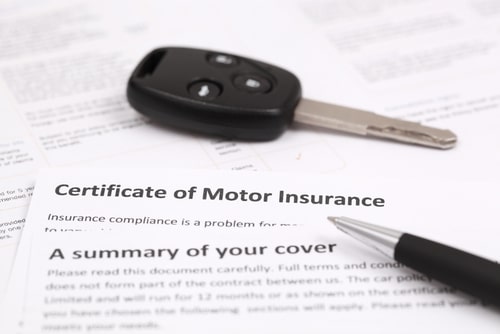When you are involved in a car accident that is not your fault, you expect the driver who caused it to be held liable for the damages they caused. In cases where the at-fault driver was operating a company vehicle or driving for business purposes, their employer may be equally responsible for the accident as well under two different legal theories. This can be particularly helpful for injured parties in cases where an employee in a company vehicle, or traveling for business purposes is not a viable candidate for collecting a judgment. In cases where a driver does not have many assets, the old saying “you can’t get blood from a stone” often becomes the deciding factor in whether an injured party is compensated or not – even if you are awarded a large judgment in court, if it is against a party that does not have the assets to make good on the award, you may still end up without the restitution that you are entitled to. A business will inevitably have far more liquid capital than any of their employees personally have access to, and by bringing them into the lawsuit as a party alongside their employee an injured party can help ensure they will actually be able to collect any damages that they are awarded by the courts.
Employer Negligence
When an employer negligently supervises an employee, or is negligent in their hiring process, they can be found negligent in their own right for the actions of their employees. Employers are required to do a certain amount of due diligence, such as checking a potential employee’s driving record and making sure that they have a valid driver’s license if that employee is going to be driving a company vehicle, or has job duties that involve traveling. Prudent companies usually will have their employees submit to drug and alcohol testing, and periodically spot-check employee driving records to be certain that they are aware of any incidents that happen after the employee is hired.
Employers are also expected to properly supervise employees while they are on the job. This includes making a reasonable effort to be sure that they obey all state and federal laws while operating a vehicle on company time, as well as establishing safety policies and procedures, and making sure that their employees obey them. As with negligent hiring practices, companies are required to act reasonably in how they manage their employees’ actions while they are on company time.
Vicarious Liability
There is a legal theory called vicarious liability that establishes that actions of an employee while at work are the same as the actions of their employer, since it is assumed that the employer has or should have control over the people whom they hire to conduct their business. This makes it possible to hold an employer liable for the actions of an employee who injures someone in an auto accident, even if the employer themselves did not have a part in the incident. In order for this to be applied, several criteria must be met:
- The employee’s actions were done while they were at work;
- The employee’s actions were within the scope of their job;
- The employee was hired to do the work that they were doing at the time; and
- The employer benefited from the work the employee was doing at the time the accident occurred.
Because of this, if an employee gets in an auto accident while running an errand for work the employer could be found liable for their actions, while if an employee has the same accident while running a personal errand the employer would not be.
Contact An Auto Accident Attorney
If you or a loved one has been injured in an automobile accident with a commercial vehicle, contact an experienced Indianapolis auto accident lawyer at Rowe and Hamilton Attorneys at Law today to discuss your options today.




